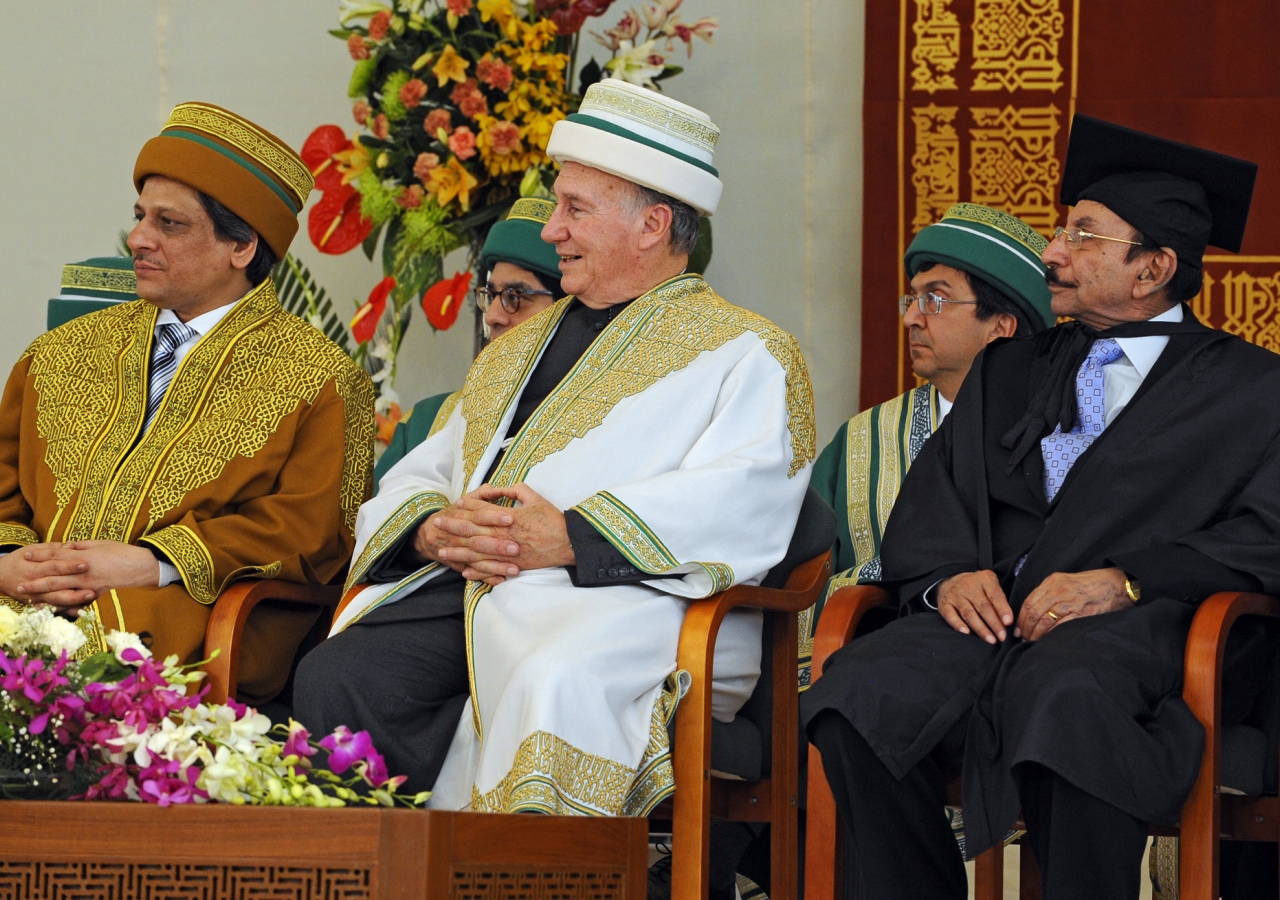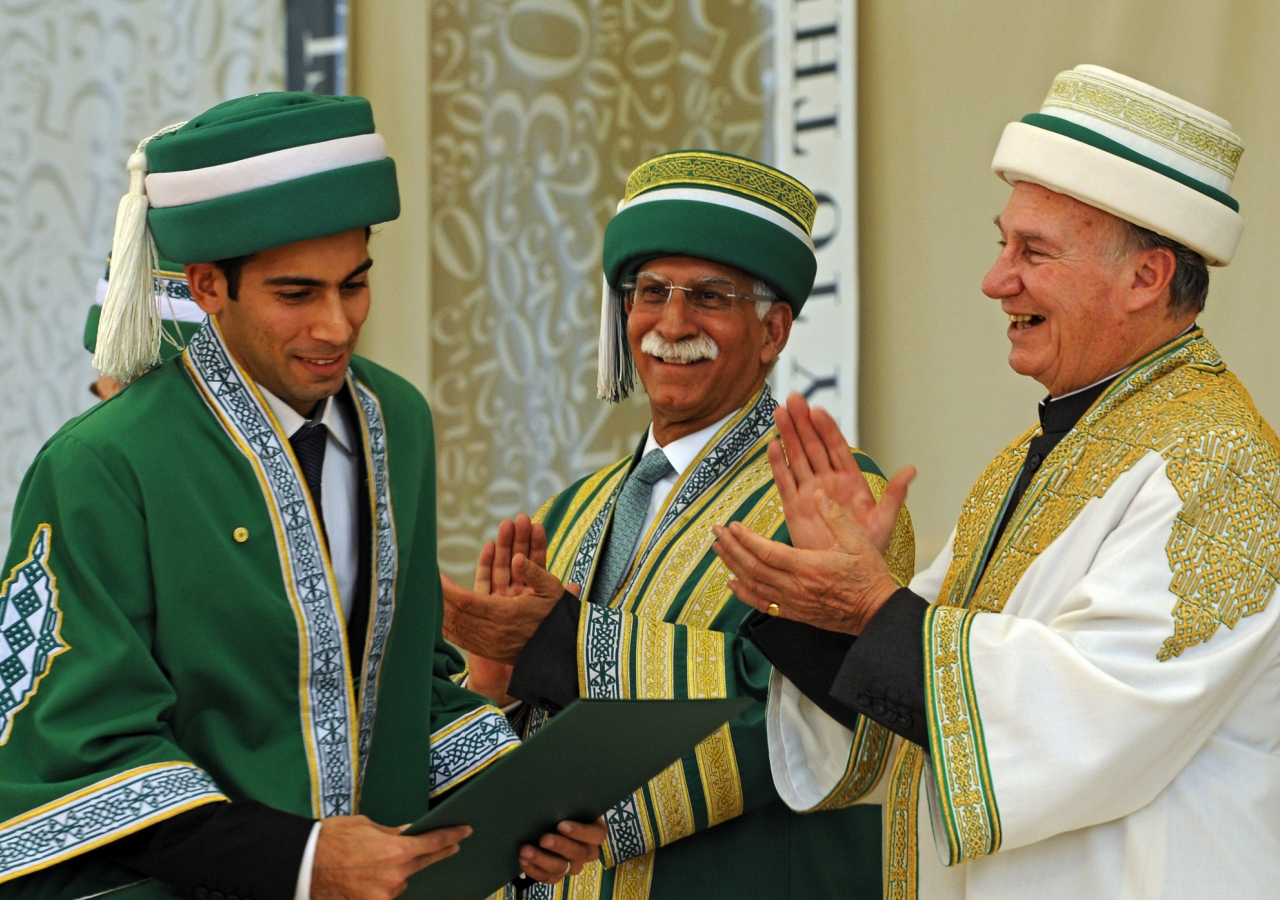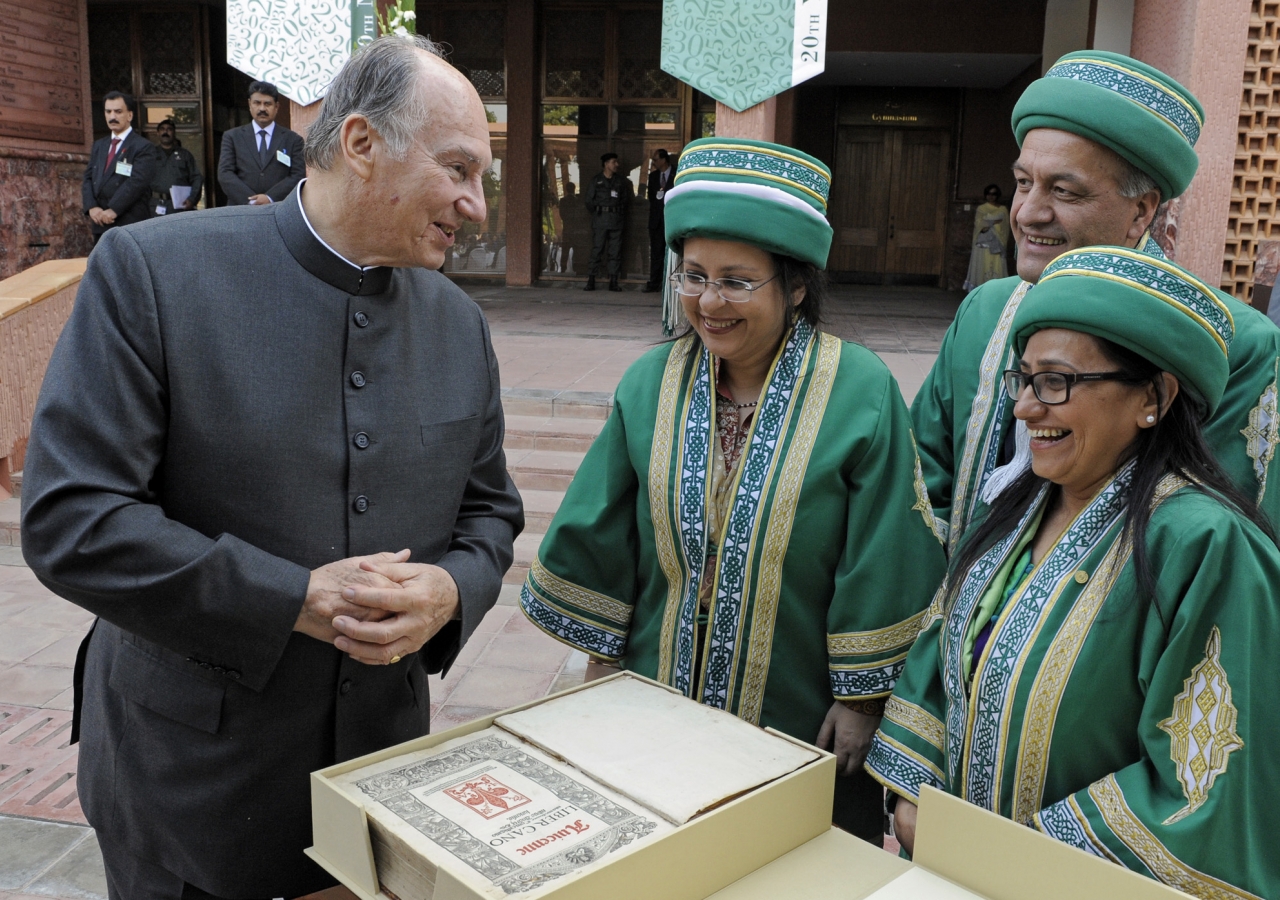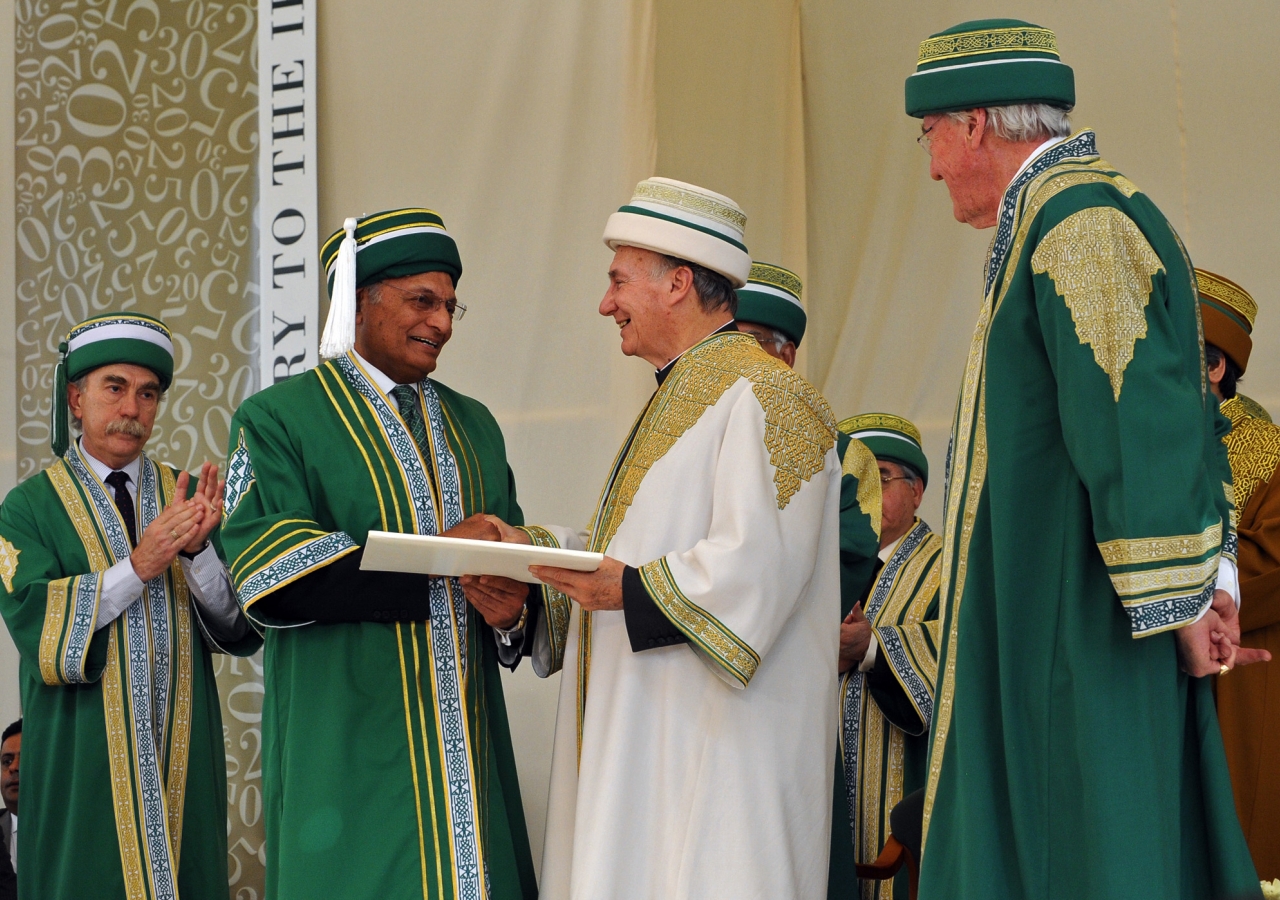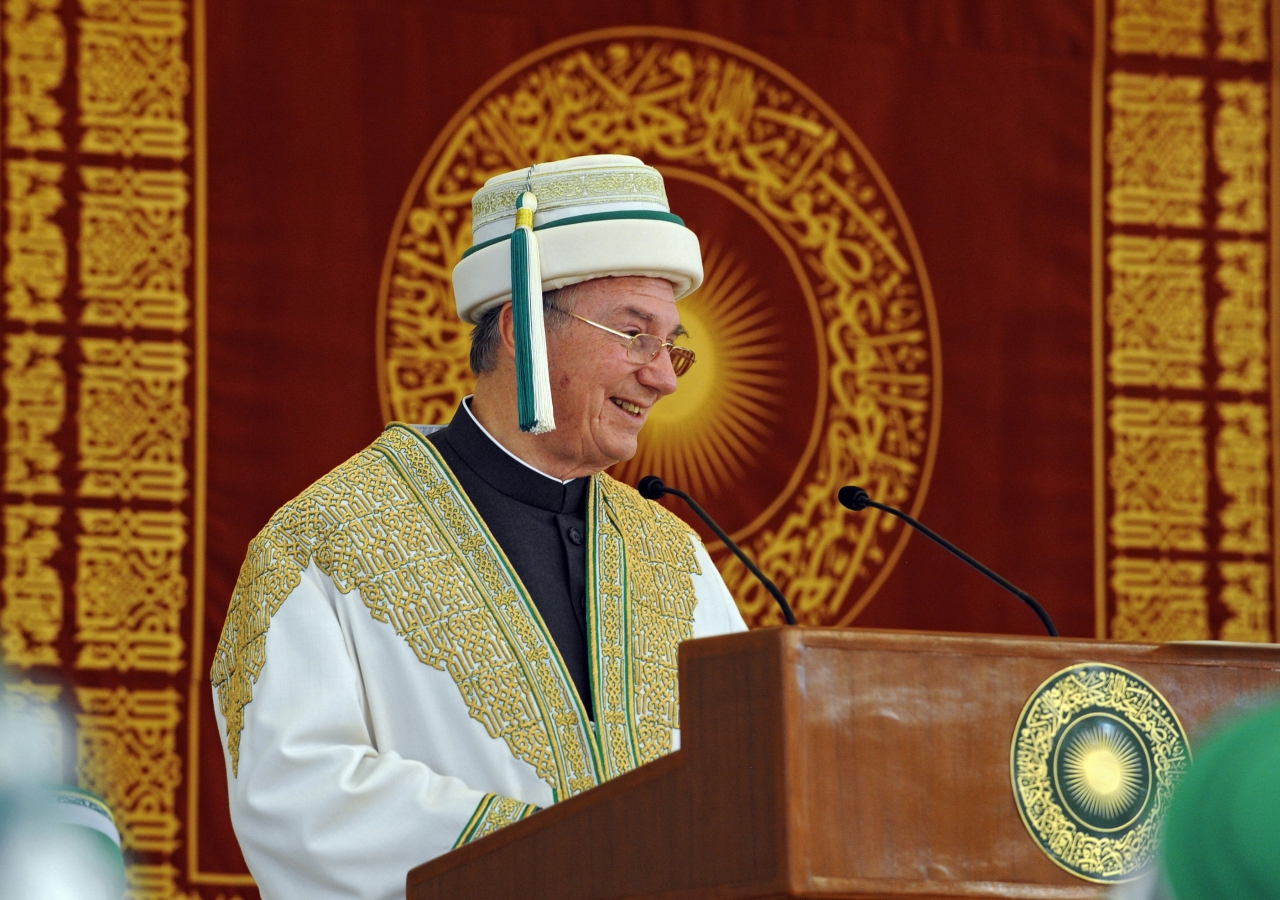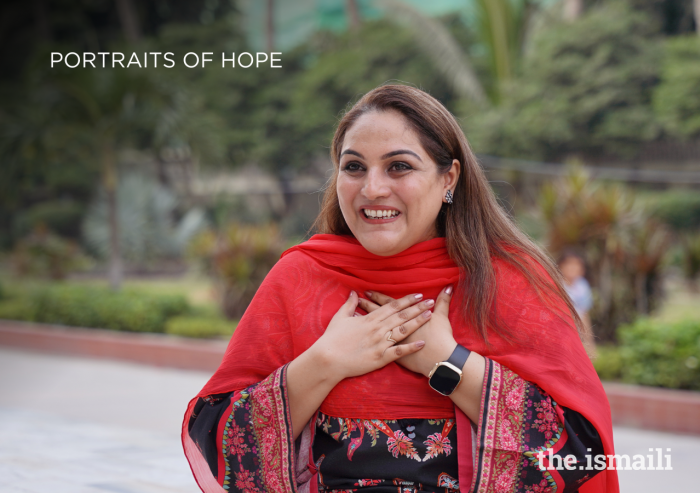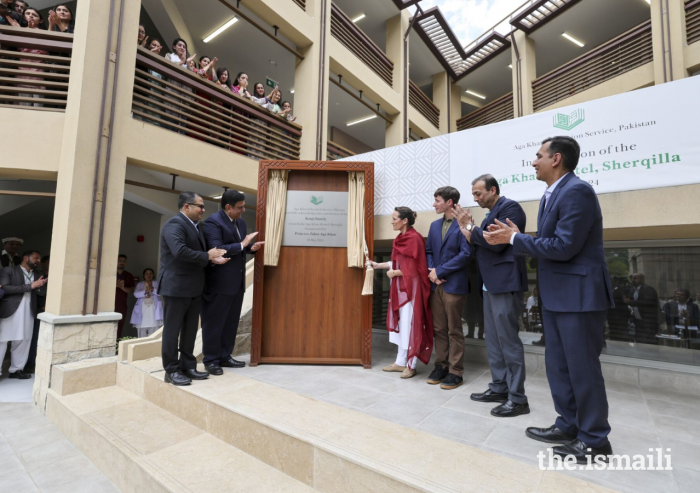Karachi, 19 December 2013 – Mawlana Hazar Imam set out a bold vision for the Aga Khan University, an ambitious challenge that will see it evolve into “a distinguished liberal arts university” over the next few decades.
“Developing a liberal arts capacity will not only fulfil AKU's founding vision, but it will also follow in the tradition of the great Islamic universities of past centuries, and their effort to expand, and to integrate a wide array of knowledge,” said Mawlana Hazar Imam, addressing the 26th Convocation of the Aga Khan University. “The liberal arts, I believe, can provide an ideal context for fostering interdisciplinary learning, nurturing critical thinking, inculcating ethical values, and helping students to learn how to go on learning about our ever-evolving universe.”
Marking several key milestones – including 30 years since it received its charter to become Pakistan's first private international university – the AKU Convocation was presided over by its founder and Chancellor, Mawlana Hazar Imam. The Imam also announced the creation of seven graduate schools to be spread across countries in two continents that will complement existing programmes in education, medicine and nursing, as well as the two Faculties of Arts and Sciences being planned for Karachi and Arusha, Tanzania.
In celebration of the occasion, Mawlana Hazar Imam paid tribute to the graduands and alumni, faculty, management, and trustees of the University. He saluted the donors who he said “have shared the goals of this young institution, and have assisted so much in their accomplishment.”
“University success stories down through history – in the Islamic world and the West have depended, inevitably, on a variety of external resources,” noted Hazar Imam. “Those resources, let me add, include not only material gifts, but also the great gifts of time and knowledge that so many contribute to our progress.”
The sweep of time loomed large over the occasion, both as an inspiration and as a warning.
Recounting the achievements of Muslim civilisations of the past, and the pre-eminent thinkers of their times whose relentless pursuit of knowledge was put to the service of society's betterment, Firoz Rasul, President of the Aga Khan University drew out lessons for the present and future.
“Our world is changing with extraordinary speed,” he said, “and when we contemplate the future, only this seems assured: That it will be as different from the present as the present is from what came before… How we can navigate the immense challenges we face and seize on the no-less extraordinary opportunities?”
The response, President Rasul said, is “by striving each day to help lead our societies create better lives for all in the midst of this unfathomable change.” Leaders, he noted, must possess “the conviction that the pursuit of knowledge through intellectual inquiry is key to progress.”
Where Muslim civilisations of the past, and the pre-eminent thinkers of their times were once in possession of that conviction – relentlessly seeking out new knowledge and putting it to the service of society's betterment – it is a conviction that has sadly waned in recent decades. But the president reminded the gathering that “it is to help lead the way up to that future that AKU was founded.” He went on to cite numerous examples of the Aga Khan University's successes, including recognition by leading global institutions of the quality, effectiveness, integrity, and leadership that the University stands for in carrying out its pursuit of education, healthcare and research.
“Perhaps the best evidence of our leadership is the track record of our alumni,” said President Rasul. “Our nursing graduates lead many of Pakistan's nursing schools and serve as chief nurses in several hospitals. Graduates of our Medical College have established new disciplines in Pakistan, such as emergency medicine, while raising standards in many others – every day, lives are saved as a result of this.”
“If the Institute for Educational Development has been influential and effective in raising educational standards, it is to a large extent because of the many alumni who serve on its faculty and in senior academic and management positions in public and private educational systems.”
Some 4 000 guests attended the historic convocation ceremony, including His Excellency Dr Ishrat Ul Ebad Khan, Governor of Pakistan's southern Sindh Province and the province's Chief Minister, Syed Qaim Ali Shah, as did Princess Zahra, who sits on the Aga Khan University's Board of Trustees. The Governor commended Mawlana Hazar Imam for his inspiring leadership, strategic vision and his profound commitment to humanity: “His contributions in our country and beyond to education and development to improving the human condition and above all to the ideals of excellence and the values of public service, social responsibility and human compassion, are for us to follow and emulate.”
Degrees were granted to 367 students, including graduands from the School of Nursing and Midwifery, the Medical College the Institute for Educational Development and the Institute for the Study of Muslim Civilisation in the United Kingdom. Awards of distinction and excellence were conferred upon esteemed recipients, including Dr Anita Zaidi, Head of the Department of Pediatrics and Child Health; Jacqueline Dias, Director BScN Programme and Assistant Professor, School of Nursing and Midwifery; and Dr Thomas Christie, the founding director of the Aga Khan University Examination Board.
Shamsh Kassim-Lakha, the founding President of the Aga Khan University, received the Award of Distinction Doctor of Humane Letters, honoris causa – AKU's highest award of distinction – for “being the torchbearer and pioneer in bringing new perspectives to delivery of university education, thereby impacting the entire higher education sector, and strategic, creative and dynamic leadership in integrating and advancing positive responses to the challenges the University faced in its first 25 years.”
Reflecting upon the “the energies and the talents, the dreams and the discipline” that drive the University forward, as well as the illustrious legacy upon which it was built – the convictions of Mawlana Sultan Mahomed Shah “of the enormous importance of higher education for the future of the Ummah around the world” and of a centuries-old tradition of achievement tracing back to the Fatimids – Mawlana Hazar Imam dismissed any doubt that his vision of what AKU might look like in 30 years is too ambitious.
“Our goals were ambitious, after all, back in 1983,” said the Imam and Chancellor. “And yet, if we could have glimpsed into the future then – if we could have forecast what this day would look like – I think we would have been very happy with the way the story has unfolded.”

